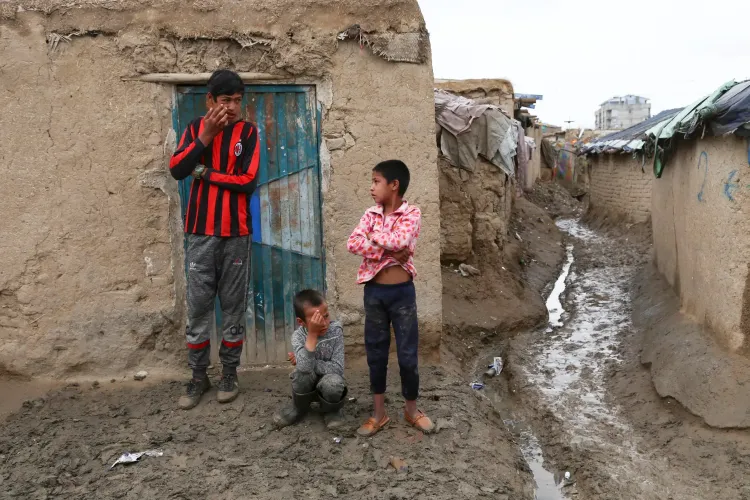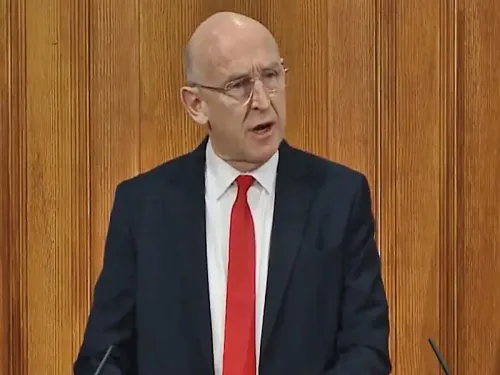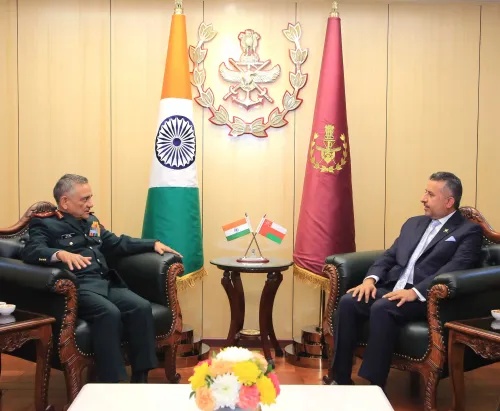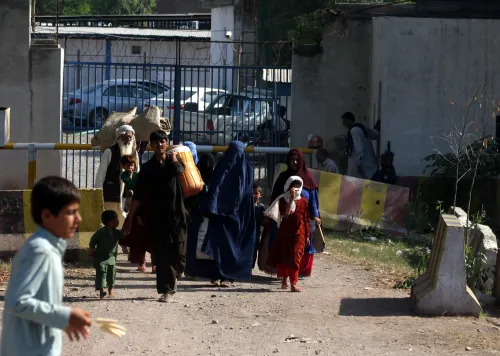Are Afghan Returnees from Pakistan Facing Winter Challenges?

Synopsis
Key Takeaways
- Afghan returnees are in desperate need of shelter and winter assistance.
- The absence of electronic ID cards complicates their situation.
- Reports of police harassment highlight the vulnerability of refugees.
- Human rights organizations must amplify their support for Afghan migrants.
- Urgent action is needed to address the ongoing humanitarian crisis.
Kabul, Nov 24 (NationPress) A number of Afghan migrants who have recently returned from Pakistan are reporting significant difficulties as the winter season approaches. They have expressed their worries about the absence of adequate shelter, the urgent requirement for winter aid, and challenges in securing electronic ID cards (tazkira), according to local news sources.
One returnee, Abdul Baqi, highlighted their plight, stating, "Our primary issue is the lack of shelter. Upon our return, we are uncertain of where to go. We appeal to the Islamic Emirate to address our circumstances." They have indicated that the available assistance is insufficient, and they continue to struggle to fulfill their basic living requirements, as reported by Afghan media outlet Tolo News.
Another returnee, Abdul Bari, remarked, "It is well-known that many individuals are homeless, spending their days on the streets and along the roads." Abdul Malik, another returnee, mentioned that they are instructed to apply for electronic ID cards upon arriving in their respective provinces and urged authorities to expedite this process.
Abdul Qahar, another refugee recently arrived from Pakistan, called on the Taliban government to provide essential items such as tents and proper shelter.
Previously, numerous Afghan refugees in Pakistan have reported feeling overwhelmed by constant pressure from local police, who not only conduct searches but also arrest individuals and exploit their vulnerable circumstances for revenue.
A report from 8AM Media, also known as Hasht-e-Subh Daily, emphasized that Afghan refugees in Pakistan are stripped of basic human rights and live under a shroud of fear and anxiety. Human rights organizations and groups dedicated to supporting refugees have remained largely silent regarding the prevailing uncertainty and the government's failure to uphold its commitments surrounding human rights and refugee protections.
In recent months, as tensions between the Taliban and Pakistan have escalated, Islamabad has intensified its scrutiny of Afghan refugees, with Pakistani forces carrying out widespread harassment across various regions, including Islamabad. In addition to official operations that result in the arrest of Afghan refugees lacking visas, individuals in civilian clothing are reportedly extorting money from migrants within residential neighborhoods. Afghan individuals have disclosed that they endure inhumane conditions rife with fear and anxiety, and their rights as refugees remain unrecognized.
"The situation is exceedingly distressing. I wish the official teams would simply arrest and take individuals away. This method is unjust; the police are aware that no one will report their actions, so they conduct searches individually. Several men in plain clothes lie in wait in the neighborhoods, seizing individuals and taking them away. It remains unclear whether they are police officers, thieves, or colluding with law enforcement," shared an Afghan national.
Another refugee, Junaid, recounted an alarming incident from a few nights ago when he was stopped by an individual in civilian attire while on a shopping errand.
Reflecting on the encounter, Junaid said, "He claimed to be a police officer and demanded to see my visa. When I inquired about his identity, he insisted on being police. I requested to see his identification. He reacted violently, threatening arrest if I spoke too much. When I attempted to resist, two other men arrived and ordered me to get into their vehicle. I had to pay 15,000 rupees to secure my release. We no longer know who the police are. It is evident they have realized that migrants lack support and are capitalizing on this situation to enrich themselves."









